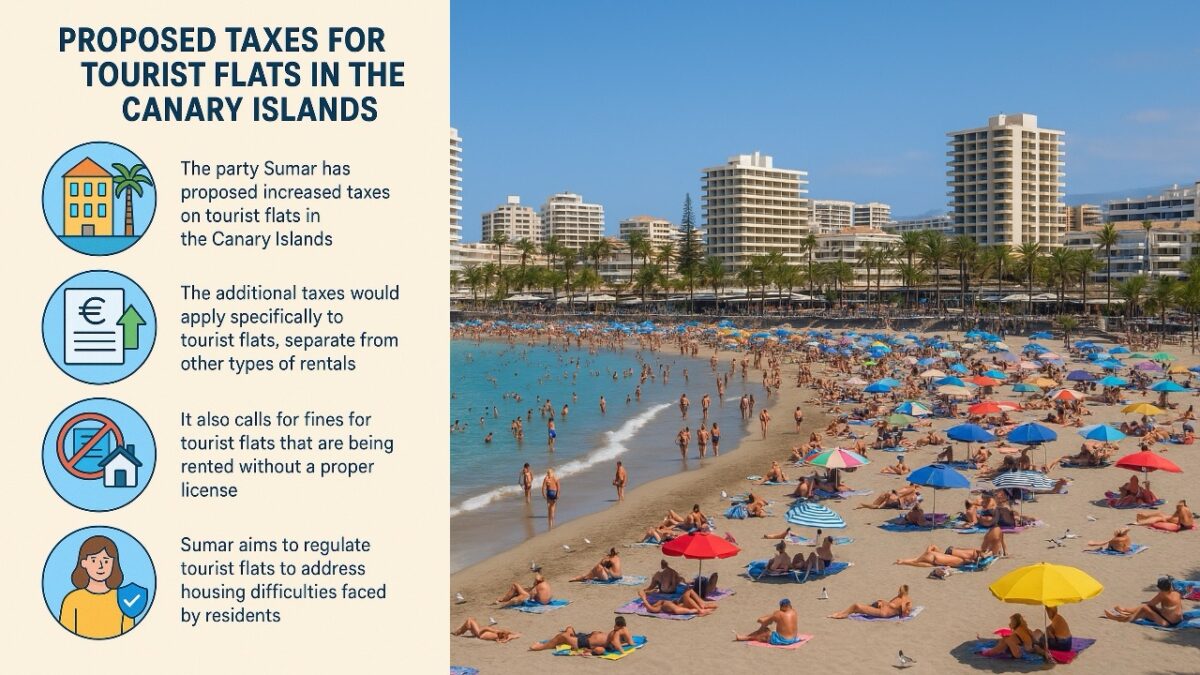Introduction
Spain’s Canary Islands may soon see a big shake-up in their booming short-term rental market. The Spanish political coalition Sumar has proposed stricter regulations, including higher taxes on tourist flats and fines for illegal rentals, to combat the growing impact of overtourism on local communities.
What’s Being Proposed?

Higher Taxes on Tourist Rentals Sumar is calling for increased taxation on tourist flats, particularly those listed on platforms like Airbnb. The intention is to discourage over-commercialization of residential housing and cool down speculative property markets. Fines for Unlicensed Rentals Property owners who operate without the proper tourist license could face financial penalties. This is aimed at improving safety standards, tax fairness, and overall regulation. Designation of ‘Stressed Zones’ High-tourism regions would be designated as “stressed zones,” allowing the government to impose stricter caps on rental licenses and control further growth in those areas.
Why Now?
Photo idea: A street scene with protest signs against housing shortages or a collage of “tourist rental” ads.
Local residents have been raising the alarm about rising rents, the scarcity of long-term housing, and the environmental impact of mass tourism. Sumar’s proposal comes amid growing public pressure to ensure tourism is sustainable and community-friendly.
Part of a National Trend
Sumar’s initiative mirrors other efforts across Spain to protect sensitive destinations. In Tenerife, local authorities are also considering a Mount Teide eco-tax to reduce pressure on the island’s most visited natural site.
Impact on Tourists and Landlords
Visual suggestion: A split-screen graphic — one side showing a relaxed tourist; the other, a frustrated local holding a housing contract.
Tourists could see slightly higher prices for short-term accommodations. Holiday let owners may need to get licensed or face fines. Local communities could benefit from better access to affordable housing and reduced strain on infrastructure.
Conclusion

Tourism is a vital part of the Canary Islands’ economy — but it must be balanced with the needs of residents and the environment. Sumar’s proposal signals a clear shift toward more regulated, responsible tourism in Spain’s most visited island regions.
